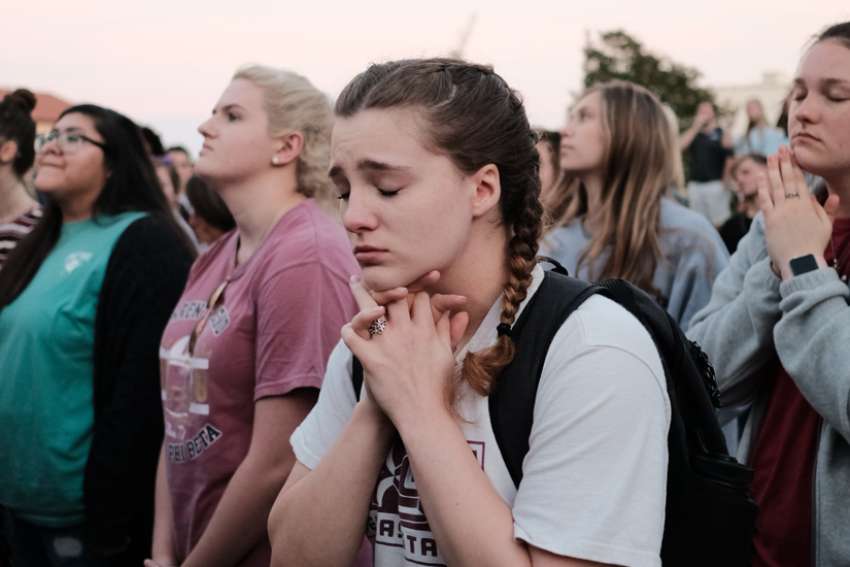A recent study by Cardus in concert with the Angus Reid Institute seems at first glance to confirm this view. Yet there are also what my former Cardus colleague James K. A. Smith has called “cracks in the secular.” Looking through these cracks suggests secularization is not inevitable in Canada or in Canadian Catholicism.
The recently released Cardus report “The Shifting Landscape of Faith in Canada” brings together data and analysis from nine online surveys conducted over the last five years. In each, survey respondents were asked seven questions about their beliefs and practices, including: Do you believe in God or a higher power? Do you pray at least once a month? Do you attend a religious service at least once a month? Is it important to teach kids about religion?
According to the report, in 2022 only 16 per cent of the Canadian population is religiously committed. Another 19 per cent is non-religious, answering “yes” to at most one question.
These two ends of the spectrum remain broadly consistent across the nine surveys. What has shifted is the middle two categories: the “Privately Faithful” (who tend to practice religion more individually or hold private spiritual beliefs) and the “Spiritually Uncertain” (who are largely irreligious but may be open to the transcendent). Two and three years ago, those on the more religious end of the spectrum accounted for 45 per cent of the population. In 2022, that number is 35 per cent, a 10-point shift in just a few years.
Now the bad news.
Of those who self-identify as Catholic, only 14 per cent are religiously committed compared to 74 per cent of Evangelicals and 50 per cent of Muslims. Roughly 25 per cent of self-identified Catholics admit to either outright believing, or being pretty sure, God does not exist. For Evangelicals the figure is roughly five per cent. Meanwhile, only 46 per cent of Catholics believe they should be public about their faith. For those in other religious traditions, at least 55 per cent believe in living faith publicly. As with mainstream Protestants, 68 per cent of Catholics believe God and religion should be kept completely out of public life.
These figures are stark, but perhaps not a surprise. What they shockingly reveal is in part an utter failure to catechize the faithful, but also to evangelize those already in the pews. This would truly be something to despair over if we were not people of Paschal hope. As we confront this stark post-Christian reality, we are blessed with a tremendous opportunity to live apostolically and no longer comfortably.
What then are some of the “cracks in the secular”?
In the 18-34 age group, 18 per cent are religiously committed, while 25 per cent are non-religious. When Ray Pennings and I took this data and analysis across Canada to meet with many faith leaders, most of whom were Christian, we gained greater insight into this phenomenon.
Young people who are in the Church and living out faithful lives are there because they believe in the Gospel. They are not there fulfilling some sort of cultural tradition or to meet social expectations. Let’s face it, it’s not especially cool or hip to be a devout Catholic these days. And that is where the opportunity lies.
Young people are not interested in surface-level faith, or what U.S. theologian George Weigel has pithily termed “Catholic lite.” They want to live the Gospel fully through integrated Catholic lives. If there is any crack in the secular, it is this: Where previous generations of young adults might have been religious by accident of birth, the current generation is irreligious by default. In their own explorations for truth, beauty and goodness, they seem to gravitate toward a faith that is authentic and deliberate.
The opportunity for the Church, then, lies in cultivating that kind of faith among its adherents.
Yes, secularization is the current trend in Canada. However, the younger generation suggests that trend can change.
(Rev. Andrew Bennett is program director, faith communities, at think tank Cardus.)


